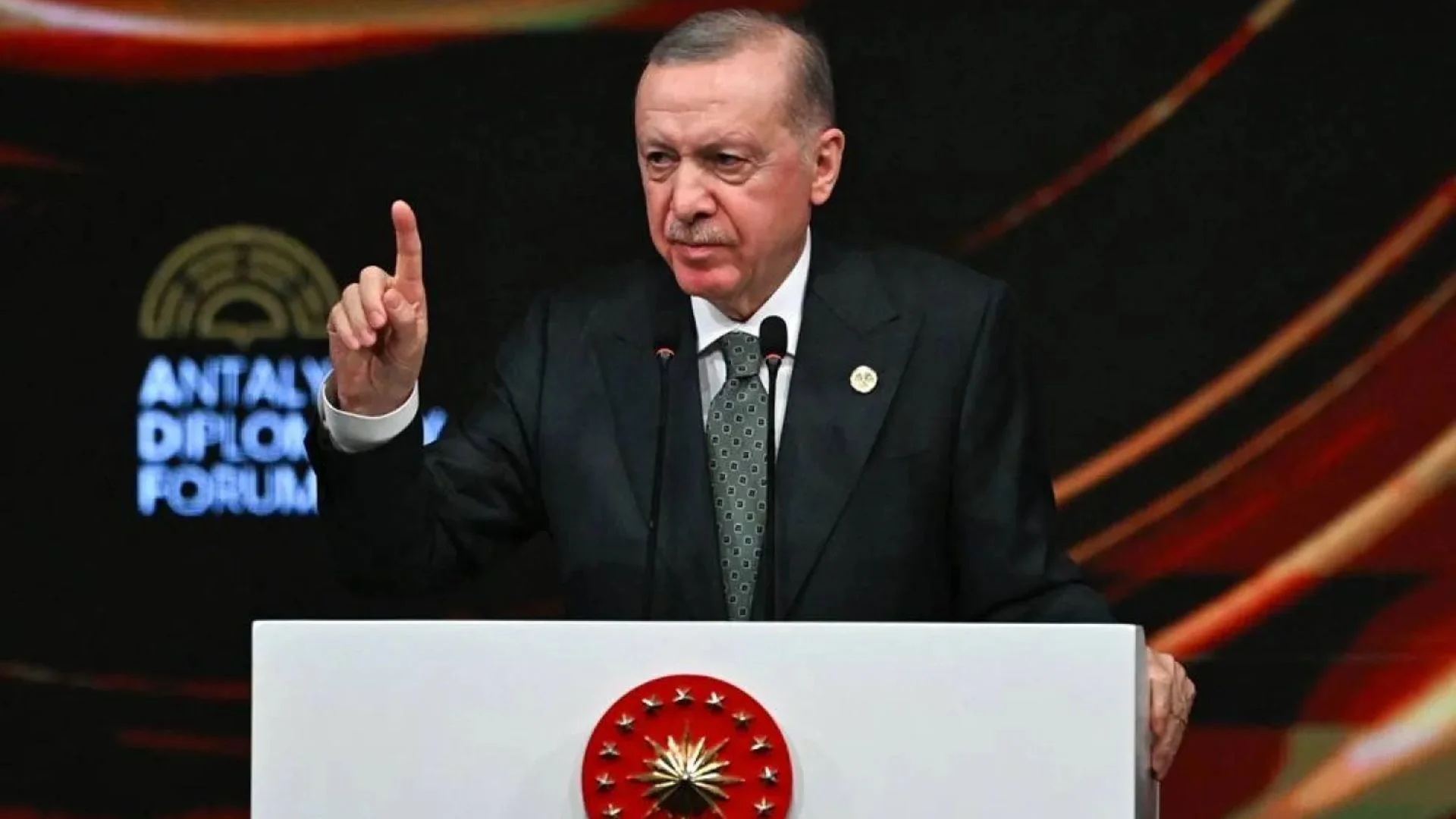Turkish President Recep Tayyip Erdogan on Friday accused Israel of deliberately fueling divisions in Syria to sabotage what he called the “December 8 revolution” that ended the regime of Bashar al-Assad. Speaking at a diplomacy forum in Antalya, Erdogan claimed Israel was exploiting ethnic and religious tensions to weaken the new Syrian government under President Ahmed al-Sharaa.
Turkey has pledged its backing to Sharaa, whose Islamist-led coalition Hayat Tahrir al-Sham (HTS) took power after Assad was removed. Sharaa met with Erdogan earlier in the day in Antalya, where the two leaders reiterated their assurances of bolstering bilateral relations, restoring Syria, and advancing the removal of international sanctions.
A Syrian foreign ministry statement emphasized that negotiations dealt with reconstruction and enhancing cooperation in several fields. Sharaa also met with Qatar’s foreign minister and referred to the forum as a significant platform to affirm Syria’s sovereignty and the significance of peaceful solutions.
Strains between Turkey and Israel continue to be high, particularly over Syria, where both countries keep demonstrating military presence. Even though both countries have been holding technical-level talks in Azerbaijan this week, Turkish officials made it clear this is not a sign of normalization, particularly as Israel continues its Syrian and Lebanese military campaigns.
Erdogan cautioned that Israeli attacks are widening instability and destabilizing regional action against Islamic State fighters. A Syrian source identified that Turkey seeks to deploy military positions in Syria, including in the T-4 airbase in Homs recently hit by Israeli attacks.
Turkey has halted all trade with Israel, with Erdogan regularly denouncing Israeli actions in Gaza as acts of “genocide” and “barbarism.” His most recent comments came after a lethal Israeli air raid that killed 10 members of one family in Gaza, sparking even more outrage.
Erdogan committed to ongoing support for Syria’s new government and regional stability.









